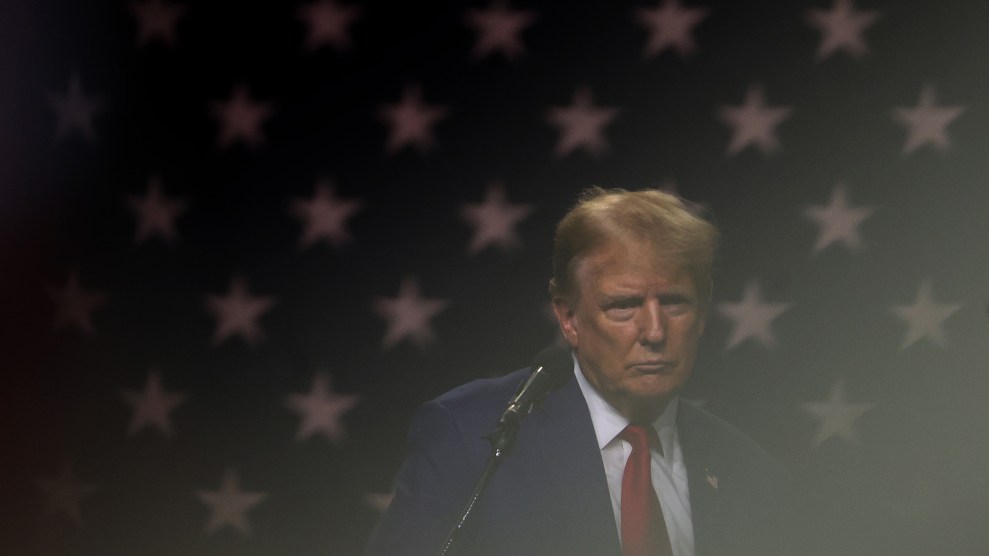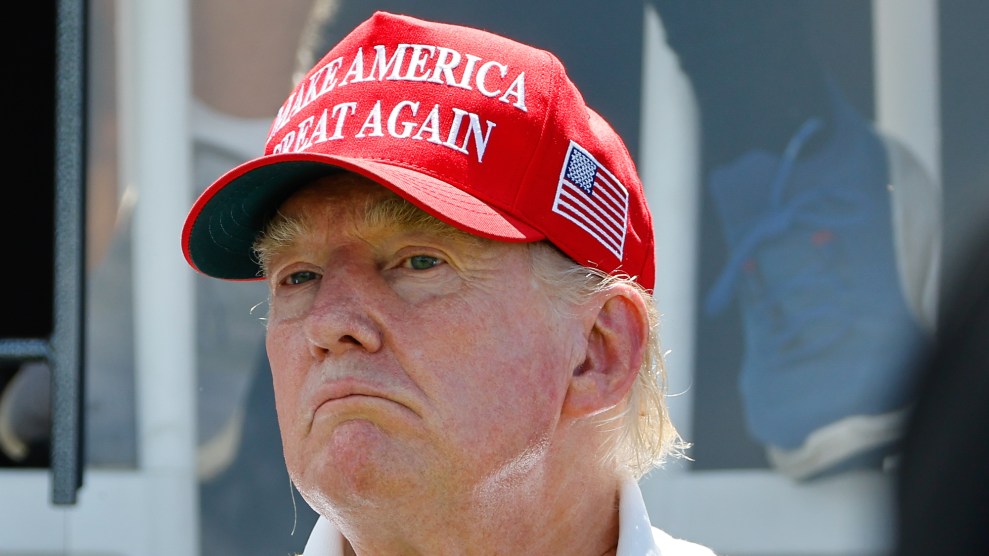
Justin Sullivan/Getty
In a earthshaking decision on Tuesday evening, the Colorado Supreme Court ruled that the Constitution bars former President Donald Trump from holding federal office again—disqualifying the Republican frontrunner from the 2024 presidential ballot in Colorado.
Trump is expected to appeal the ruling to the Supreme Court. If the justices were to affirm the Colorado Supreme Court’s decision, Trump could be wiped off ballots nationwide.
“We do not reach these conclusions lightly,” the Colorado Supreme Court wrote in its decision. “We are mindful of the magnitude and weight of the questions now before us. We are likewise mindful of our solemn duty to apply the law, without fear or favor, and without being swayed by public reaction to the decisions that the law mandates we reach.”
The decision overturns the ruling of a federal court in Denver last month. As I reported then:
In the days after the Capitol attack on January 6, 2021, some legal experts began to speculate that a little-known constitutional provision might be used to block President Donald Trump from ever serving a second term. The 14th Amendment, passed after the Civil War, included a portion, called Section 3, that was designed to keep former Confederate leaders out of Congress. But could the section, which disqualified officials who had engaged in “insurrection or rebellion,” also be used to block Trump from running for president again, based on his actions supporting for the Capitol riot?
In the lead-up to 2024, attorneys across the country have been trying to make exactly this case—and so far, they haven’t received a direct answer. But on Friday, a federal judge ruled for the first time on the merits of the argument. Following a landmark trial in Denver, Federal District Judge Sarah B. Wallace authored a scathing opinion finding that Trump did indeed engage in insurrection. Nonetheless, Wallace decided, he could appear on the Colorado primary ballot, because Section 3’s language isn’t specific enough on the matter of whether it applies to presidents.
…Among the legal considerations in the case, Wallace was undoubtedly conscious of the monumental consequences of her decision, and the potential that ruling out the Republican frontrunner could cause civil unrest. “Part of the court’s decision is its reluctance to embrace an interpretation which would disqualify a presidential candidate without a clear, unmistakable indication that such is the intent of Section 3,” she wrote in her decision. Elsewhere, judges have avoided ruling on the issue, dismissing similar lawsuits in New Hampshire and Minnesota on procedural grounds. In Michigan, a judge ruled that the questions at the heart of the cause—including the meaning of insurrection—were “nonjusticiable, political” issues that should be up to Congress to settle.
Evidently, the Colorado Supreme Court disagreed. On Tuesday, it ordered Secretary of State Jena Griswold to exclude Trump from next year’s Republican primary ballot—but stayed its decision until January 4 to allow time for Trump to appeal.


















